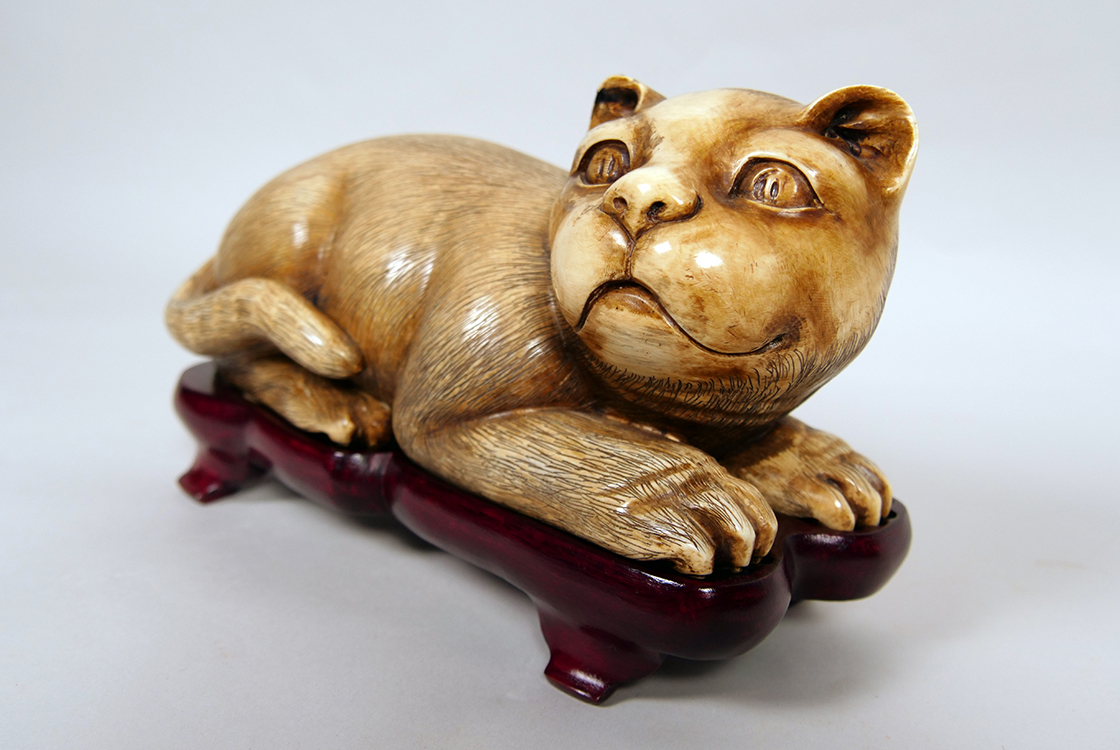Avert Your Ivories
Journey of Ivory through History, Cultures, and Global Ethics

September 25, 2025
6 PM
Helen DeVitt Jones Auditorium and
Sculpture Court
Free parking available
Book signing & reception to follow
Speakers:
John Beusterien, Ph.D., Professor of Spanish, Department of Classical & Modern Languages & Literatures, Texas Tech University; Coauthor of Elephants and Ivory in China and Spain
Tracee Robertson, M.A., Helen DeVitt Jones Curator of Art, Museum of Texas Tech University
Hyojung Cho, Ph.D., Associate Professor, Heritage and Museum Sciences, Texas Tech University
Tess Drake, M.A. Candidate, Heritage and Museum Sciences; Graduate Intern, Art Division Outreach and Engagement
Avery Bonnett, B.F.A. Printmaking, Texas Tech University; Art Division Collection Management Assistant
Can We Talk about the Elephant in the Gallery?
Ivory has long been valued for its beauty and symbolic meaning, making it part of natural and cultural heritage. For millennia, ivory has been used by many cultures—in Africa, Asia, and Europe—to create religious icons, musical instruments, and ceremonial and decorative objects. Beyond the objects, the act of ivory carving reflects generational knowledge, spiritual beliefs, and cultural identity, making it part of a living heritage for many communities.
Despite its artistic legacy and historical significance, ivory holds a complex status within cultural heritage. The ivory trade is a subject of urgent global scrutiny, heavily restricted by international and national regulations due to its direct role in the dramatic decline of elephants toward extinction. These regulatory efforts arise not only from conservation pressuresbut also from ethical dilemmas, ecological threats, and political and economic entanglements.
Ivory reminds us that its natural origins must be acknowledged alongside its artistic legacy. Because it comes from sentient and dignified animals, whose lives and ecological significance are inseparable from the cultural objects they make possible, ivory presents a challenge to museums and collectors. It raises difficult questions about how to safeguard heritage while also protecting biodiversity and upholding global conservation ethics.
Avert Your Ivories invites audiences to explore how ivory has been valued across time and cultures—and to join in considering the complex questions it raises today about heritage, ethics, exhibition, and conservation. John Beusterien, Ph.D., Professor of Spanish in the Department of Classical & Modern Languages & Literatures at Texas Tech University and coauthor of Elephants and Ivory in China and Spain, will speak on the global history of elephants and ivory. Tracee Robertson, Helen DeVitt Jones Curator of Art, will offer a curatorial perspective on the Museum’s ivory collection, addressing its context, stewardship, and the complex responsibilities it entails. Tess Drake, M.A. Candidate, Heritage and Museum Sciences; Graduate Intern, Art Division Outreach and Engagement, will share her research on the collection and offer ideas for communicating the value of ivory objects. Illustrations by Avery Bonnett, B.F.A. Printmaking, Texas Tech University; Art Division Collection Management Assistant, from Elephants and Ivory in China and Spain will be featured in the presentation. Hyojung Cho, Ph.D., Associate Professor of Heritage and Museum Sciences at Texas Tech University, will serve as moderator, highlighting the political, economic, and cultural dimensions of efforts to combat the illicit trafficking of ivory.
This free, public event will take place at 6:00 PM on September 25, 2025, in the Helen DeVitt Jones Auditorium and Sculpture Court at the Museum of Texas Tech University. A public reception will follow the presentations. The event will feature a special showcase of selected ivory pieces from the Museum’s collection, exhibited for the occasion, and a book signing of Elephants and Ivory in China and Spain by Dr. Beusterien.
Museum at Texas Tech University
-
Address
3301 4th Street, Lubbock, TX 79415 -
Phone
806.742.2490 -
Email
museum.texastech@ttu.edu
